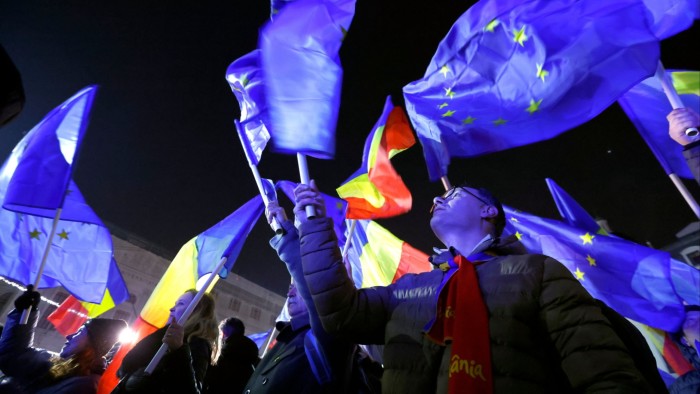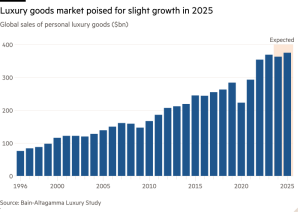Romania and Bulgaria to join EU’s Schengen free movement area

Unlock the Editor’s Digest for free
Roula Khalaf, Editor of the FT, selects her favourite stories in this weekly newsletter.
EU ministers have approved the full accession of Bulgaria and Romania to its Schengen area of free movement, at a time when the zone is jeopardised by the reimposition of border controls by some of its members.
Hungary, which holds the rotating EU presidency, said on Thursday that ministers had decided to lift land border controls between the two eastern European countries and their EU neighbours from January 1.
“A great victory for Bulgaria, Romania, and all of Europe!” the Hungarian presidency wrote on social media platform X. The Schengen area now counts 29 full members.
Romania and Bulgaria joined the EU in 2007, but only became partial members of Schengen in March this year, as countries, including Austria, vetoed their accession over concerns of corruption and irregular migration.
Vienna’s decision last month to lift its veto paved the way for EU home affairs ministers to authorise the removal of the remaining checks at Romania and Bulgaria’s land borders.
Léon Gloden, interior minister of Luxembourg, home to the small town of Schengen where the free movement deal was signed in 1985, welcomed the step ahead of the formal approval.
“Luxembourg has always supported the full membership of Bulgaria and Romania,” he told the Financial Times. “It’s also an important membership in the view of protecting the exterior frontiers of Schengen.”
Schengen has come under pressure as countries including Germany, France and the Netherlands have reimposed controls along their national borders, arguing this was necessary to curb migration and crime. Germany has signalled a willingness to extend the temporary border checks beyond their planned expiration date in March.
Gloden criticised such moves, saying they undermined “trust” and “faith” in EU values. “I do not accept that again barriers will be set up in the minds of our people,” he said.
Romania and Bulgaria have long coveted the right of border-free travel, making full accession to Schengen an important victory for the two countries. But it comes at a difficult time for Sofia and Bucharest, with both capitals mired in political turmoil.
Bulgaria has been unable to elect a stable ruling majority in seven straight elections over more than three years.
In Romania, mainstream parties were forced into an uneasy coalition after the far-right gained ground in a vote this month. The country’s presidential election was also compromised by a Russian cyber attack and a social media campaign that elevated a pro-Moscow outsider to the top of the polls.
Romania’s top court annulled the presidential vote in a step unprecedented in Europe, and a new vote will be held next year.
Ion M. Ionita, a Romanian historian, said that access to Schengen had been a goal for Bucharest for many years, and lamented the “irony that we’re discussing totally different topics and don’t have the time and the mood to enjoy this step forward”.
He said Schengen was a symbol of Romania’s embrace of the west — a notion that Russia has tried to challenge.
“Joining the euro will be the last step in Romanian accession to the EU, otherwise that process is complete,” he said. “It ends a long discussion about Romanians being second-class citizens in the EU — nobody can claim that now.”
#Romania #Bulgaria #join #EUs #Schengen #free #movement #area




